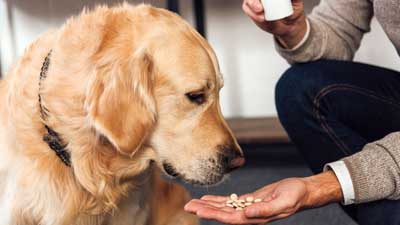- Size
- Smallest
- Small
- Small to Medium
- Medium
- Large
- Giant
- Characteristics
- Smartest
- Hypoallergenic
- Fluffy
- Best Guard
- Best Family
- Best for Kids
- Low Shedding
- Healthiest
- Police Dogs
- Most Calm
- Quietest
- Color
- White
- Black
- Grey
- Brown
- Blue
- Red
- Coat
- Hairless
- Short
- Long
- Origin
- Japan
- China
- Australia
- Germany
- Italy
- United States
- France
- Group
- Hound
- Terrier
- Herding
- Toy
- Working
- Sporting
How Long Does A Dog Cold Usually Last?

Photo by Sdf Rahbar on Unsplash
Just like their human counterparts, dogs can experience colds, characterized by symptoms such as sneezing, coughing, and nasal congestion. As pet owners, it's natural to be concerned about our furry friends' well-being and wonder about the duration of a dog's cold.
In this comprehensive guide, we'll explore the typical duration of canine colds, the associated symptoms, and essential care guidelines to ensure a swift and comfortable recovery for your beloved companion.
Recognizing Signs of a Dog Cold
Changes in Behavior:
Decreased Energy Levels: A noticeable reduction in your dog's usual activity and playfulness might indicate they are feeling under the weather.
Increased Sleeping: Dogs tend to sleep more when unwell as their body requires extra rest to recover from the illness.
Respiratory Symptoms:
Sneezing and Coughing: Just like in humans, dogs with colds may exhibit sneezing and occasional coughing as their body attempts to clear the respiratory passages.
Nasal Congestion: Your dog may experience a runny or congested nose, leading to difficulties in breathing through their nose.
Eye and Throat Symptoms:
Watery Eyes: Excessive tearing or discharge from the eyes can be a sign of a cold or respiratory infection.
Sore Throat: Dogs may exhibit signs of discomfort while swallowing or may vocalize their discomfort through whining or changes in their bark.
Duration of Symptoms:
Typical Duration: A dog cold commonly lasts from 5 to 10 days, with symptoms gradually improving as the immune system fights off the viral infection.
Monitoring Changes: Pet owners should observe changes in their dog's behavior and symptoms, keeping track of any worsening or persistent signs.
When to Contact Your Vet
Breathing Difficulties:
If your dog is struggling to breathe or shows signs of respiratory distress, immediate veterinary attention is crucial.
Refusal to Eat or Drink:
A persistent lack of interest in food or water can lead to dehydration and nutritional deficiencies. Contact your vet if your dog refuses to eat or drink.
Persistent Symptoms Beyond 10 Days:
While a dog cold typically resolves within 5 to 10 days, prolonged or worsening symptoms may indicate a more severe underlying issue that requires professional evaluation.
Chronic Conditions or Senior Dogs:
Dogs with pre-existing health conditions, elderly dogs, or puppies may be more vulnerable to complications. Veterinary consultation is recommended for these cases.
Unusual Behavioral Changes:
Any concerning changes in behavior, demeanor, or signs of severe discomfort should prompt a call to your veterinarian.
Home Care for Dogs with Colds
Provide a Comfortable Environment:
Create a warm and quiet space where your dog can rest comfortably.
Encourage Hydration:
Ensure access to fresh water to keep your dog well-hydrated. Consider offering ice cubes or a water bowl with added appeal, such as low-sodium broth.
Nutrient-Rich Diet:
Offer a nutritious diet to support your dog's immune system. Warm, palatable food may be more appealing if their sense of smell is affected.
Gentle Nose Cleaning:
Use a soft, moist cloth to clean your dog's nose, especially if there is nasal discharge. This helps alleviate congestion.
Monitor Temperature:
Keep an eye on your dog's body temperature. A slight increase in temperature may accompany a cold, but persistent or high fever requires veterinary attention.
Conclusion
Understanding the typical duration of a dog cold and recognizing associated symptoms are crucial for providing appropriate care. While most cases resolve within one to two weeks, attentive monitoring, veterinary guidance, and supportive care play key roles in ensuring a speedy and comfortable recovery for your canine companion. Remember, when in doubt, always consult with your veterinarian for personalized advice tailored to your dog's unique needs.
You May Also Like
 Dog HealthCan Humans Transmit Colds To Dogs?
Dog HealthCan Humans Transmit Colds To Dogs? Dog HealthDog Cold vs. Kennel Cough: What's the difference?
Dog HealthDog Cold vs. Kennel Cough: What's the difference? Dog HealthExploring Canine Cold Tolerance: How Low Can Dogs Go?
Dog HealthExploring Canine Cold Tolerance: How Low Can Dogs Go? Dog HealthHow Long Does It Take A Dog To Show Signs Of Parvo?
Dog HealthHow Long Does It Take A Dog To Show Signs Of Parvo? Dog HealthCan I Give Human Amoxicillin To My Dog?
Dog HealthCan I Give Human Amoxicillin To My Dog? Dog HealthWhat Happens If A Dog Eats Amoxicillin?
Dog HealthWhat Happens If A Dog Eats Amoxicillin?